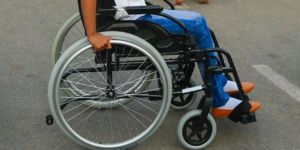Family Counseling – psychological

Currently, family counseling is a widely demanded type of psychological assistance among the population of Australia. Family counseling works in psychological centers, counseling centers, registry offices operating in the system of the Ministry of Social Protection and committees for the protection of families and children, as well as in other institutions.
Using the need for help. The family counseling model of psychological assistance involves working with families and family members who, not only objectively, but also subjectively experience difficulties in family communication and family education, i.e. motivated to accept psychological help and voluntarily turned to the Consultation. This position is based on the experience gained in the fact that psychological methods of influence are effective only for families who voluntarily turn to a psychologist.
Throughout its life, family counseling can and inevitably faces a variety of problems and crises.
These problems and crises are of a different nature and origin.

Some of them are associated with the passage of the family counseling through various stages of the life cycle, with those ordinary, natural events that occur in families and which separate one stage of the life cycle from another. Any “natural” event in the life of a family (marriage, childbirth, child’s admission to the school, someone’s death or illness, etc.) and its consequences inevitably give rise to certain problem situations, crises in families, require from the family making appropriate decisions, mobilizing the necessary resources for this. They are commonly referred to as “normative stresses”.
Other problems and crises that a family has to face are generated by events such as premature death, divorce, job loss, arrest, natural disaster, inflation, unemployment, war.
Crisis events and situations can be perceived and experienced in completely different ways by families at different stages of the life cycle. They are critical to family development because lead either to a constructive resolution of the crisis and development or to family maladjustment and the subsequent destruction of the family. The outcome depends on the nature of the perception of current crisis situations and the family’s ability to resolve them.

The family counseling may have an identified and formed need to seek external support to resolve both normative and non-normative crises, but this need may not be identified or even formed.
Basically, divorcing families, families with one parent, families with a stepfather or stepmother, families with foster parents, families with disabled children, families in which one of their members is imprisoned or in a psychiatric hospital, seek psychological help. families with small children families in which violence against children or other members occurs, families with adolescent children who tend to commit suicide.
Recently, family counseling psychologists, along with those mentioned above, also mention families with hyperactive children, families with problem marital relationships, families that have experienced loss, families of alcoholics, unemployed, etc., as well as families with a combination of several problems.
Young families need help in situations of stress, including families before and immediately after the birth of their first child, bi-career families, poor families, families in which a small child has died, etc.
Many families are not able to cope with problems and crises on their own, are not able to change themselves in order to preserve their integrity
From the point of view of the family’s ability to solve the normative and non-normative crises that arise before it, all families can be divided into three groups :

- mature families, in which the system of interactions is quite flexible, whose members are free to express their feelings and desires, in which all emerging problems are openly discussed in the family, which makes it possible to find new patterns of relations, adequately change the family structure;
- pseudo-well-being families, in which the bulk of efforts are aimed at maintaining consent and unity in front of the outside world and in which any individual disagreements are therefore excluded, and integrity is achieved for the time being as the subordination of the will and desires of all to the will and desires of one;
- problem families, interactions in which are chaotic and based on continuous disputes and conflicts leading to a crisis, and in which past experience teaches nothing and does not serve as a guide for future behavior.
It is obvious that the objects of psychological help can be families belonging to any of these three types. However, firstly, the degree of their need for help is different, just as the specific content of it is different. Mature families may need support, rather, in situations of abnormal stress, when dangerous but natural situations arise (accident, serious illness, physical or mental defect, untimely death, an accident caused by external factors).
Family counseling is appropriate when :
- a family problem is a relationship problem, such as marital conflict, the strong rivalry between stepchildren, the conflict between generations;
- the problem under consideration is present in one family member, and on the rest, his symptoms have a strong effect; for example alcoholism, drug addiction, juvenile delinquency, psychosis ;
- family counseling may be indicated when the counselor has worked intensively with a family member’s problem and there has been little success. In this situation, the family counseling psychologist must take into account the homeostatic function, in which the symptoms of one client serve as identifying signs of the pathology of the entire family system. For example, long-term depression in a middle-aged woman may be seen by her as the only way to control her husband and children;
- finally, this is a huge number of families who want to know more about themselves, change, and improve. Such families often turn to us themselves.
Another article on this blog that might interests you:
Disability Services: Tips for caring people with disabilities







